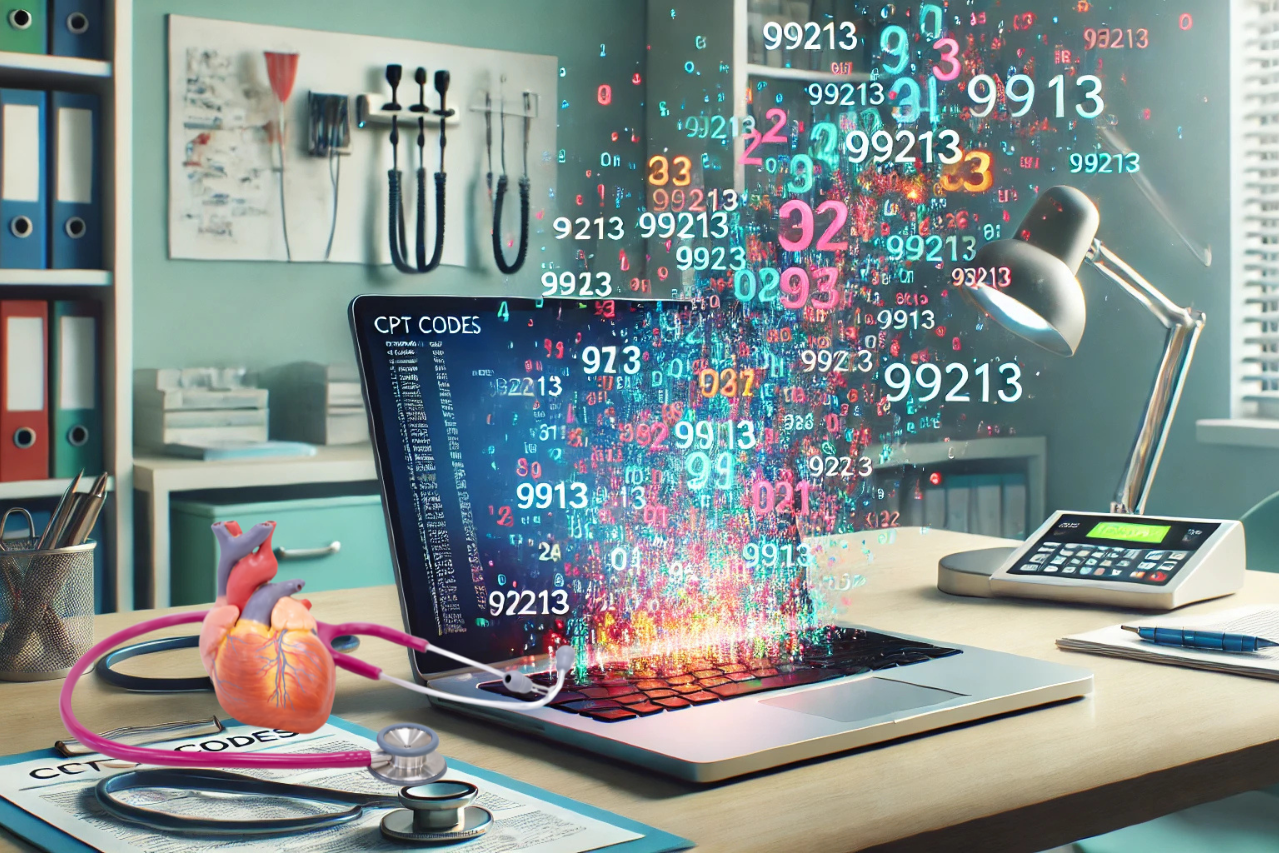As healthcare organizations increasingly adopt digital solutions to manage patient data, the importance of protecting sensitive health information has never been greater. Health Information Management (HIM) systems house vast amounts of confidential data, including personal health records, medical histories, treatment plans, and billing information. Safeguarding this data from cyberattacks, unauthorized access, and potential breaches is a top priority. However, traditional security measures can be inadequate in addressing the growing sophistication of cyber threats.
This is where Artificial Intelligence (AI) steps in. AI is playing a pivotal role in enhancing data security and privacy within healthcare systems. By leveraging machine learning algorithms, predictive analytics, and advanced encryption techniques, AI is enabling healthcare organizations to identify cybersecurity risks, mitigate potential breaches, and comply with regulatory standards.
How AI-Driven Algorithms Identify Cybersecurity Threats in Healthcare
Healthcare organizations face a unique set of cybersecurity challenges, from safeguarding patient data to managing the complex networks that connect healthcare providers, insurers, and third-party vendors. AI-driven algorithms are designed to continuously monitor these systems, detect potential threats, and identify anomalies that could indicate a security breach.
Identifying Patterns and Anomalies
AI excels at recognizing patterns in large datasets, which is crucial for detecting early signs of cyberattacks. In a typical healthcare environment, data flows between EHR systems, health information exchanges (HIEs), wearable health devices, and billing systems. Each of these interactions generates data, and AI algorithms can analyze this information to identify deviations from established patterns.
For example, AI can monitor login attempts, file transfers, and data access points. If an unusual access pattern is detected—such as a login from an unfamiliar location or the transfer of a large amount of data during off-peak hours—the AI system can flag this as a potential threat. These algorithms can also detect subtle behavioral changes in user activity, such as a doctor suddenly accessing patient records that are unrelated to their specialty, which could indicate compromised credentials or insider threats.
Real-Time Threat Detection
AI-powered systems can operate in real time, continuously analyzing data and responding to threats as they arise. Traditional security systems may only detect breaches after they occur, leading to delayed responses and greater damage. In contrast, AI enables healthcare organizations to detect and neutralize potential attacks in real time, preventing data breaches before they compromise sensitive patient information.
For instance, AI-driven cybersecurity platforms like Darktrace use machine learning to create a dynamic profile of each device and user within a healthcare network. By constantly updating its understanding of “normal” behavior, Darktrace’s AI system can instantly recognize anomalies that indicate a security breach, allowing for immediate intervention and minimizing the risk of data exposure.
AI’s Role in Encryption and Multi-Factor Authentication
Beyond detecting threats, AI also plays a crucial role in encrypting sensitive health data and ensuring that only authorized individuals can access it. Data encryption and multi-factor authentication (MFA) are essential components of any healthcare security strategy, and AI is enhancing these measures in several ways.
AI-Enhanced Data Encryption
Data encryption ensures that sensitive health records remain secure even if a cyberattack occurs. AI algorithms can optimize encryption processes by identifying the most effective encryption methods for specific data sets. AI also enables dynamic encryption, which adjusts in real time based on the sensitivity of the data being accessed and the perceived level of risk.
For example, AI can trigger stronger encryption protocols when a healthcare provider accesses sensitive patient information, such as mental health records or genetic data. In lower-risk scenarios, such as viewing general medical history, a less complex encryption protocol may be applied. By tailoring encryption strategies to the context, AI balances security with system performance, ensuring that healthcare providers can quickly access data without compromising safety.
AI-Driven Multi-Factor Authentication (MFA)
Multi-factor authentication is one of the most effective ways to prevent unauthorized access to health information systems. AI improves MFA by analyzing user behavior and adapting security measures based on risk levels. For example, if a healthcare worker logs in from their usual device and location, the system may require only a standard password and fingerprint scan. However, if the same user attempts to log in from an unfamiliar location or device, AI can escalate the authentication process by requiring additional verification steps, such as facial recognition or a one-time passcode.
This adaptive approach to MFA, powered by AI, ensures that security measures are both robust and user-friendly, minimizing the risk of breaches while avoiding unnecessary disruptions to healthcare workflows.
Predictive Analytics: Preventing Cyberattacks Before They Occur
One of the most powerful applications of AI in healthcare cybersecurity is the use of predictive analytics to anticipate and prevent cyberattacks before they happen. Predictive analytics leverage historical data, machine learning models, and behavioral patterns to forecast future cybersecurity risks and proactively address them.
How Predictive Analytics Works
AI-powered predictive analytics can analyze vast amounts of historical security data to identify trends and patterns that are often overlooked by human analysts. For example, AI systems can learn from previous security incidents—such as phishing attacks, ransomware infections, or insider threats—and use that knowledge to predict when and where similar attacks may occur in the future.
By identifying potential vulnerabilities, such as unpatched software or outdated security protocols, AI can alert healthcare organizations to address these weaknesses before cybercriminals exploit them. This proactive approach helps reduce the risk of data breaches, minimizes downtime, and ensures the integrity of patient information.
Real-World Application: Predictive Analytics in Healthcare Security
Several healthcare organizations are already using predictive analytics to enhance their cybersecurity defenses. For example, Cleveland Clinic has implemented an AI-powered predictive analytics platform to monitor its network and prevent cyberattacks. The system analyzes millions of data points across the clinic’s infrastructure to detect potential threats and suggest preventive measures. By anticipating attacks before they occur, Cleveland Clinic has been able to strengthen its security posture and protect patient data more effectively.
Real-World Examples of AI-Enhanced Data Security in Healthcare
Numerous healthcare organizations are adopting AI-powered solutions to safeguard their health information management systems. Here are a few real-world examples:
Mayo Clinic
The Mayo Clinic uses AI-driven cybersecurity tools to protect its vast network of healthcare facilities. By analyzing real-time data and identifying suspicious activities, Mayo Clinic’s AI systems detect potential security breaches and respond to threats faster than traditional methods. The clinic’s adoption of AI has reduced the frequency of unauthorized access incidents and strengthened overall data security.
Mount Sinai Health System
Mount Sinai has integrated AI to protect its health information systems and ensure compliance with data privacy regulations. The AI system monitors user behavior and network traffic, quickly identifying potential security risks and mitigating them before they escalate. Mount Sinai’s AI-enhanced security protocols help the organization maintain the integrity of its patient records while complying with HIPAA and other privacy standards.
Ethical and Legal Considerations for AI in Health Information Management
While AI brings significant advancements in data security, it also raises ethical and legal concerns regarding the handling of sensitive health information. As healthcare organizations adopt AI-driven solutions, they must carefully navigate these challenges to ensure ethical use and compliance with regulatory standards.
Compliance with HIPAA and GDPR
Healthcare organizations must ensure that their AI-powered security systems comply with regulations such as the Health Insurance Portability and Accountability Act (HIPAA) in the United States and the General Data Protection Regulation (GDPR) in the European Union. These regulations require healthcare providers to protect patient data, implement robust security measures, and ensure that only authorized individuals have access to sensitive information.
AI systems must be designed with these regulations in mind, ensuring that data privacy and security are maintained throughout the entire lifecycle of the health information. This includes implementing data encryption, secure access controls, and continuous monitoring for potential security breaches.
Addressing Bias and Privacy Concerns
AI algorithms rely on large datasets to function effectively, but the use of these datasets can raise privacy concerns, particularly if the data is sensitive or identifiable. Healthcare organizations must ensure that AI systems are designed to respect patient privacy and avoid introducing bias into the security process.
For example, AI algorithms should be regularly audited to ensure that they do not disproportionately flag certain groups of patients or healthcare workers as security risks based on biased data. Transparency and accountability are essential when using AI to handle sensitive health information.
AI’s Role in Safeguarding Health Information Management
AI is revolutionizing data security and privacy in health information management by identifying cybersecurity risks, enhancing encryption methods, and predicting cyberattacks before they occur. By leveraging AI-driven solutions, healthcare organizations can protect sensitive patient data, ensure compliance with regulatory standards, and respond to threats in real time.
However, the integration of AI into healthcare security must be done thoughtfully, with careful consideration of ethical and legal challenges. By addressing these issues, healthcare providers can use AI to build a more secure and resilient health information management system, ultimately protecting patients and ensuring the integrity of healthcare data.
Sources:
- Darktrace. AI-Driven Cybersecurity for Healthcare.
- Cleveland Clinic. Predictive Analytics in Healthcare Security.
- Mayo Clinic. AI for Real-Time Threat Detection and Response.
- HIPAA Journal. HIPAA Compliance in AI-Enhanced Healthcare Security.




